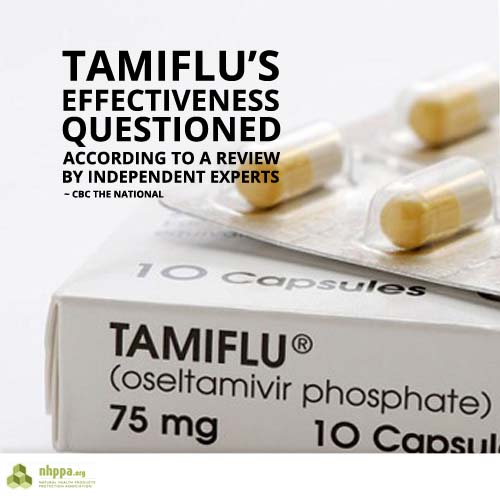NATIONS AROUND THE WORLD HAVE SPENT BILLIONS STOCKPILING ANTIVIRAL DRUGS. CANADA ALONE SPENT ALMOST $200 MILLION.
These decisions were made without access to approximately half of the clinical data available to the manufacturers.
In a report titled Tamiflu’s effectiveness questioned CBC’s The National covers an independent analysis of reports on antiviral drugs which have not been released until now. The report states, “Two antiviral drugs have mediocre effects on relieving flu symptoms, according to a review by independent experts.”
The Cochrane Collaboration is an internationally renowned human health care and policy research body. The group has been fighting for the right to access all data since 2009, when nations around the world began stockpiling the drug in anticipation of a ‘bird flu’ pandemic.
We now know that prior to April 2013, fewer than half of the clinical studies on these two drugs had been published. At the time Roche, the makers of Tamiflu gave the Cochrane group access to one part of just 10 Tamiflu trials. There are 74 in total.
The CBC TV slot interviews experts on the findings of this new report, and covers a meeting of the Public Health Agency of Canada. According to the new study, the previously unpublished research show that Tamiflu and Relenza reduce the duration of flu symptoms by half a day for adults and do not significantly reduce the risk of either hospitalisations or complications from flu. The reduction in symptom duration for children was slightly higher, 29 hours, but the report points out that the same effects would be observable for Acetaminophen.
Interviewed by the CBC, Dr Robert Strang of Canada’s Council of Chief Medical Officers chose to quote another Roche-funded study, showing some effects on the fatality rate of patients already hospitalized. Of course, if this one result is significant (and not contradicted by other studies) it could provide a reason for hospitals to store a small amount of Tamiflu for the especially vulnerable, but this one effect could have no appreciable value for trans-national pandemic preparedness.
A BBC News article on the same report states:
“Another justification for stockpiling was to slow the spread of the disease to give time for a vaccine to be developed. The report’s authors said ‘the case for this is simply unproven” and “there is no credible way these drugs could prevent a pandemic’.
It also claimed that the drug had a number of side-effects, including nausea, headaches, psychiatric events, kidney problems and hyperglycaemia.”
At a time when the World Health Organization and most other nations are finally looking at the whole picture, this Canadian preference for clutching at straws within pharma-funded data does not sit well.
READ in-depth coverage by the BBC
MORE ON THE RUSH TO APPROVE DRUGS:
ANH Europe reports that international concern over the science behind vaccination programs is being spearheaded by a group in Australia.
READ Alliance for Natural Health Europe’s article ‘Needling the concept of universal vaccination’
Former Health Canada scientist and whistleblower Shiv Chopra has been warning for many years that the rush to approve drugs is no longer based on sound research. In this article by Helke Ferrie for Vitality Magazine you can read more from Shiv on the true science behind vaccination, drug approval, antibiotic resistance, and many other issues that governments seem slow to accept.





